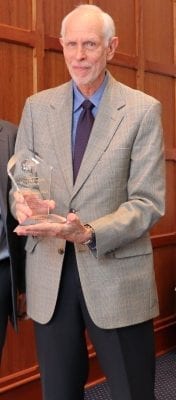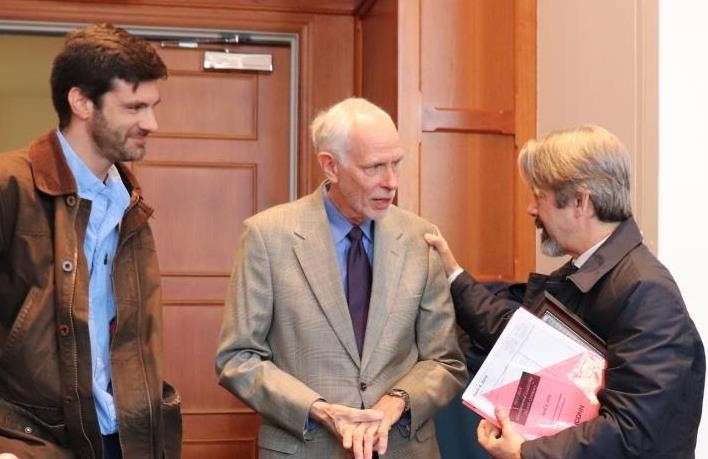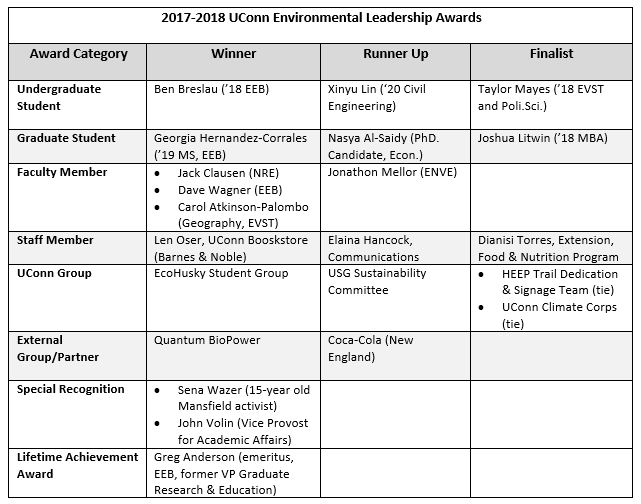
From 1973 and the moment he arrived in Storrs as a young assistant professor in Ecology & Evolutionary Biology, Greg Anderson has been a campus environmental leader, dedicating time and effort, above and beyond his internationally recognized research and academic pursuits, to making UConn a greener place. Four-and-a-half decades later, having been named a Board of Trustees’ Distinguished Professor, and served as an EEB department head, then a Vice Provost for Graduate Research & Education (VPGRE), Greg remains the “heart and soul” of the environmental movement at UConn.
Even as a semi-retired, emeritus faculty member, working from his lab in Torrey Life Sciences for the past few years, Greg is still as active, engaged and passionate about the environment as anyone on campus! Nearly 25 years ago, he founded and remains a leader of the committee that oversees UConn’s thought-provoking Teale Environmental Lecture Series. Similarly, more than two decades ago, Greg established, and still co-chairs, the Campus Arboretum Committee, which has planted, identified, preserved and mapped out the locations of dozens of specimen trees across campus. In fact, just this past year, Greg has worked with the co-president of EcoHusky to begin a tradition of planting a graduating Class Gift Tree, using crowd-sourced funding by students and friends of the Arboretum, plus tools and expertise provided by UConn’s landscape architect and arborist staff.
His moral support and leadership has also been key to an environmentally-responsible campus. In 2008, while serving as VPGRE, he was the senior administrator most responsible for convincing then-President Mike Hogan to sign UConn’s pledge for developing a Climate Action Plan (CAP) and achieving carbon neutrality by 2050. Greg was at the front of the room, standing proudly alongside then-state DEP Commissioner Gina McCarthy (who later served eight years as head of President Obama’s EPA), when Hogan signed onto this important climate leadership commitment. And he was there four years later when Susan Herbst reaffirmed UConn’s carbon commitment upon her arrival as the University’s President.


That year, and for several years after, Greg helped organize an annual series of panelists and guest speakers on topics relevant to Climate Impact, Mitigation and Adaptation, and he was instrumental in bringing his longtime colleague, Gene likens, a pre-eminent ecologist and founder of the Cary Institute for Ecosystem Studies, to UConn as President Herbst’s Special Advisor on the Environment. The CAP has since driven UConn’s rise to the top of national and international green campus lists, according to the Sierra Club’s annual “Cool Schools,” Best Colleges, and GreenMetric World University rankings, among other sources.
The inaugural UConn Environmental Leadership Award for Lifetime Achievement looks great in the hands of Greg Anderson, the “heart and soul” of UConn’s Environmental movement for more than four decades.
